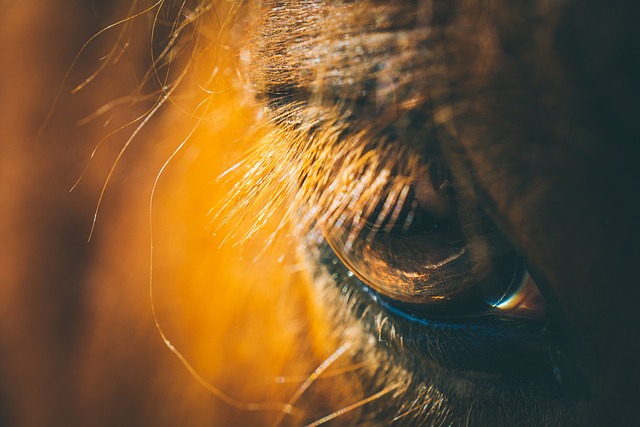When selecting a horse lead rope between polypropylene and cotton, consider their unique advantages for equestrian activities. Polypropylene ropes are highly durable, resistant to environmental factors like moisture and UV rays, and have a high tensile strength, making them ideal for withstanding forces and suitable for all weather conditions. Their smooth texture ensures a comfortable grip, and they're resistant to chemicals, mold, and mildew, enhancing their longevity. Cotton ropes offer comfort with their soft, biodegradable nature and are particularly good at wicking away moisture, beneficial in humid conditions. While cotton's tensile strength is less than polypropylene's, it still provides durability when well-maintained. Both materials are suitable for various activities, with the choice depending on your personal style, the horse's needs, and environmental considerations.
For a custom horse rope, polypropylene leads with its exceptional strength-to-weight ratio, superior tensile strength, and resistance to fraying, making it ideal for managing different horse sizes and temperaments, especially in aquatic environments. Cotton ropes are gentle on sensitive horses and have eco-friendly properties, reducing the risk of skin or coat irritation. They require regular maintenance to prevent mold and rot. Riders should consider factors like weather conditions, horse sensitivity, and their commitment to maintenance when choosing between these materials.
Maintaining a horse lead rope is key for both safety and performance. Polypropylene ropes are durable in various weather conditions but may degrade over time with UV exposure, while cotton ropes are soft and suitable for show events but require careful washing and drying to maintain their integrity. Both materials offer distinct advantages, and the choice should align with individual preferences, upkeep commitment, and sustainability goals, considering the environmental impact of each material. The decision between a horse rope made from polypropylene or cotton should be based on personal values, equine needs, and the desired balance between performance, durability, and environmental responsibility.
When selecting a horse lead rope, equestrians face a choice between traditional cotton and modern polypropylene. This article delves into the comparative analysis of these materials, examining their composition, durability, strength, flexibility, and environmental impact to determine which makes for the best custom horse rope. From material longevity to ease of maintenance, each aspect is considered to assist in making an informed decision for your equine companion’s safety and your riding experience.
- Material Composition and Durability: Understanding Polypropylene and Cotton in Horse Lead Ropes
- Strength and Safety Considerations for Custom Horse Ropes
- Flexibility and Ease of Use with Horse Lead Ropes
- Maintenance and Longevity: Caring for Your Horse Rope Over Time
- Environmental Impact and Sustainability of Cotton vs. Polypropylene Horse Ropes
Material Composition and Durability: Understanding Polypropylene and Cotton in Horse Lead Ropes

When selecting a horse lead rope, the material composition plays a crucial role in determining its durability and suitability for various equestrian activities. Both polypropylene and cotton are popular choices for custom horse ropes due to their distinct properties.
Polypropylene horse lead ropes are crafted from a synthetic, lightweight thermoplastic that offers exceptional resilience against environmental factors such as moisture and UV rays. This material is highly durable, with a tensile strength that can withstand significant force before breaking. Polypropylene’s low density means it floats on water, making it an excellent choice for use in wet conditions or near water bodies. Its smooth surface allows for a comfortable grip, and its resistance to chemicals, mold, and mildew ensures longevity and reliability over time.
On the other hand, cotton horse ropes are made from natural fibers that offer a different set of advantages. Cotton is a biodegradable material that is soft to the touch and has excellent moisture-wicking properties. This can be particularly beneficial for both the horse’s comfort and the handler’s grip during sweating or humid conditions. While cotton does not have the same level of tensile strength as polypropylene, it is still a durable material when properly maintained. It is also highly customizable, allowing for a wide range of designs, colors, and braiding patterns to create a unique custom horse rope that reflects the owner’s style or the horse’s needs. The natural fibers of cotton have a lower abrasion resistance compared to synthetic fibers, but when taken care of, cotton ropes can serve effectively for both casual and competitive equestrian use.
Strength and Safety Considerations for Custom Horse Ropes

When evaluating the strengths and safety considerations for custom horse ropes, both polypropylene and cotton have distinct advantages. Polypropylene horse lead ropes are renowned for their remarkable strength-to-weight ratio, making them a favored choice for many equestrians. They exhibit exceptional tensile strength, which is crucial for handling horses of varying sizes and temperaments. The durability of polypropylene means it resists fraying and degradation from moisture and UV light, ensuring longevity and consistent performance. This material also floats on water, an added benefit during activities like trail riding where the rope may come into contact with water.
On the other hand, cotton custom horse ropes offer a different set of properties. They are known for their softness and flexibility, which can be gentler on a horse’s skin and coat. This softness also minimizes the risk of injury or irritation to the horse during use. Cotton ropes have a natural texture that provides a good grip, reducing the likelihood of the rope slipping through the halter rings. Additionally, cotton is a biodegradable material, making it an eco-friendly option for those prioritizing sustainability in their equestrian gear. When selecting between polypropylene and cotton horse ropes, it’s important to consider the specific needs of the rider, the horse, and the environment in which they are used, as both materials have unique benefits that can contribute to the safety and effectiveness of the horse rope.
Flexibility and Ease of Use with Horse Lead Ropes

When evaluating the suitability of a horse lead rope for both the equine and the handler, flexibility and ease of use are paramount. Traditionally, cotton has been the material of choice for many horsemen due to its soft texture and comforting weight. Cotton ropes offer a high degree of flexibility, allowing for smooth movements and gentle handling, which is essential when working with horses that may be skittish or have a sensitive temperament. Additionally, cotton ropes are often more affordable compared to synthetic options, making them an accessible choice for a wide range of users. However, their natural fibers require careful maintenance to prevent mold and rot, especially in damp conditions or during the changing seasons.
In contrast, polypropylene custom horse ropes present a modern alternative that marries durability with lightweight functionality. These synthetic ropes are known for their superior flexibility and resilience against environmental factors such as moisture and UV rays. The ease of handling is not compromised by weather conditions, ensuring a consistent feel in the hand regardless of the climate. Polypropylene ropes also have the advantage of being highly visible, which can enhance safety during low-light training sessions or competitions. They are less prone to absorbing water, reducing the risk of weight gain and potential entanglements. When selecting a polypropylene horse lead rope, consider the specific needs of your equine partner and the environment in which you train, as these factors will influence the performance and longevity of your chosen horse rope.
Maintenance and Longevity: Caring for Your Horse Rope Over Time

When it comes to maintaining and ensuring the longevity of your horse lead rope, both polypropylene and cotton ropes present unique considerations. For a synthetic option, a polypropylene horse lead rope is renowned for its durability and resistance to water, making it an excellent choice in various weather conditions. Regular cleaning with a mild detergent and allowing it to air dry can restore its functionality and extend its lifespan. It’s resistant to rot, mildew, and abrasion, which means less frequent replacements and cost savings over time. However, exposure to UV light can degrade the material, so storing it indoors or using a protective coating can further enhance its longevity.
On the other hand, a cotton horse rope, often used for show or dressage, offers a natural alternative with a different set of maintenance requirements. It’s softer and more pliable than polypropylene, which some riders prefer for comfort and control around their horses. To maintain its condition, it should be washed in warm water with a gentle soap and then hung to dry away from direct sunlight. This helps prevent shrinkage and maintains the rope’s flexibility. Regularly inspecting your custom horse rope for signs of wear and replacement as needed is crucial to ensure safety during use. Both materials have their merits, and the choice between a polypropylene or cotton horse rope should be based on your specific needs, preferences, and the level of maintenance you are willing to commit to over time.
Environmental Impact and Sustainability of Cotton vs. Polypropylene Horse Ropes

When considering the environmental impact and sustainability of horse lead ropes, both cotton and polypropylene have their merits and drawbacks. Cotton, a natural fiber, is biodegradable and renewable, making it an eco-friendly option for those prioritizing sustainability. Custom horse ropes made from organic cotton reduce the carbon footprint compared to synthetic alternatives. The cultivation of cotton can be optimized through organic farming practices that minimize environmental harm and support biodiversity. However, the production of cotton does have environmental costs, such as the significant amounts of water required for its growth, which can strain local ecosystems, particularly in regions experiencing water scarcity.
On the other hand, polypropylene horse ropes are synthetic and typically derived from petroleum. They are known for their durability and resistance to moisture and mildew, which contribute to a longer lifespan than cotton ropes. This longevity can result in fewer replacements over time, potentially offsetting the initial environmental impact associated with their production. Polypropylene is also lighter than cotton, which can be an advantage during prolonged use as it prevents unnecessary weight from fatiguing the horse or handler. Despite this, the production and disposal of polypropylene contribute to land and marine pollution if not managed responsibly. Recycling or repurposing these ropes after their useful life is crucial to mitigate their environmental impact.
In conclusion—or rather, in summation—both cotton and polypropylene have their roles in the realm of horse lead ropes. The choice between a custom horse rope made from cotton or polypropylene should be guided by the user’s priorities, whether it be environmental considerations, durability needs, or budget constraints. It is important to weigh these factors carefully when selecting the most appropriate horse rope for your equine partner and your personal values regarding sustainability.
In conclusion, the choice between a polypropylene or cotton horse rope hinges on various factors including durability, safety, flexibility, and environmental impact. Polypropylene custom horse ropes stand out for their superior longevity and resistance to moisture, making them an excellent choice for intense riding conditions. Conversely, cotton horse ropes offer a traditional feel and are highly biodegradable, aligning with sustainable practices. Ultimately, the best horse rope is one that meets both your equine companion’s safety needs and your personal values regarding material use and environmental considerations. Whether opting for the tried-and-true strength of polypropylene or the natural comfort of cotton, ensuring proper maintenance will enhance the lifespan and performance of your chosen horse lead rope.
